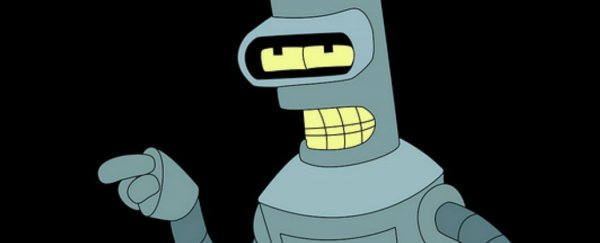As great as computers are at crunching their way through millions of numbers in just a few seconds, they're not well known for having deep emotions or a sense of humour - until now. A new artificial intelligence system developed by Microsoft has been trained to spot the funniest submissions to the ongoing New Yorker cartoon caption competition. Indeed, the software has been developed partly out of necessity, with so many entries flooding in that the human editors can't cope.
"The process of looking at 5,000 caption entries a week usually destroys [my editorial assistant's] mind in about two years, and then I get a new one," the New Yorker cartoon editor Bob Mankoff explained to Bloomberg. "It's a little bit daunting. It's like going snow blind; you go humour blind."
That's why Mankoff has been working alongside Microsoft researchers Dafna Shahaf and Eric Horvitz in developing the new humour-sensitive AI software. Of course, the program needs to be trained in what's funny and what isn't, because it doesn't have an innate sense of what makes something witty: by feeding in thousands of previous submissions, the AI gets a large database of previous responses to work from.
And then there's the problem of getting the software to recognise exactly what the cartoon depicts - essential if it's going to pick out a caption for it. To figure this out, the researchers settled on a series of keywords split up into two groups - context and anomaly - which provided enough data for the AI engine to work with. In the final reckoning, the computer wasn't quite as good as the human editors at choosing the funniest caption, but it was good enough at filtering out the bad jokes to make it useful.
Factors like the complexity of the caption, its readability, the sentiment within it, and the number of proper nouns and indefinite articles were all used to weigh up whether a joke was actually funny. By the end of the study, the team estimated that at least 2,200 submissions per week could be eliminated from the competition without the risk of throwing away a potential gem. "I do think the future is human-machine companionship," says Mankoff. "Computers can be a great aid."
For Microsoft, the long-term aim is getting to a stage where software can come up with jokes of its own (based on a massive database of previous witticisms of course, rather than original thought) - that would make apps such as Cortana more pleasant to deal with. It's a change from having to worry about robots rising up and taking over civilisation. And if we can prevent something like this from ever happening again, it'll all be entirely worth it:

The efforts of the researchers are being presented at the KDD data conference in Sydney on 13 August, and the official report has also been published online.
